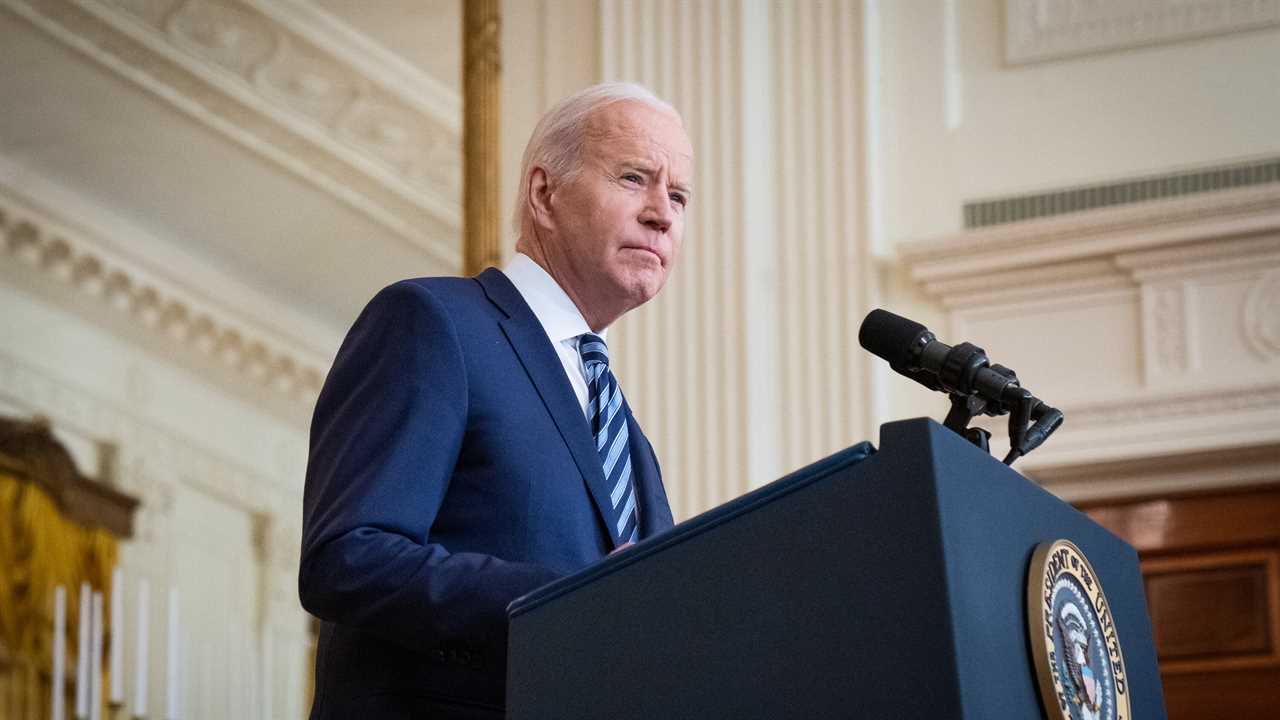
WASHINGTON — Ron Klain, the White House chief of staff, gave a pep talk early on Feb. 18 at the daily gathering of the president’s most senior aides: The next 10 days, he said, will be the most consequential of the Biden presidency.President Biden’s military and intelligence chiefs had told him that a Russian invasion was all but inevitable. Mr. Klain, a veteran of Washington and one of Mr. Biden’s closest advisers, also reminded them of what they already knew: A coming land war in Europe was about to collide with some of the most critical moments of Mr. Biden’s time in office.The president had completed his review of candidates for the Supreme Court and was determined to make the announcement by week’s end. The Centers for Disease Control and Prevention was about to unveil guidelines that would herald a new phase of the pandemic that had dogged him during the first year of his presidency. And Mr. Biden needed to start practicing for his first State of the Union speech, just 11 days away.All presidents are confronted by episodes that are out of their control, forced to react to the world around them more often than they are able to shape it. But the dizzying events of the past week have for now pushed to the sidelines the congressional squabbling over Mr. Biden’s domestic agenda, and are already redefining the arc of his presidency.This account is based on interviews with a dozen current and former administration officials, most of whom agreed to describe internal deliberations on the condition of anonymity.Mr. Biden’s aides say his actions in recent days were an example of the caution and consensus-building that have always been at the heart of his sales pitch to voters. In his State of the Union address on Tuesday, Mr. Biden is expected to focus on inflation and the still-recovering economy, a primary concern to the public.But drafts of the speech have been revised repeatedly throughout the week to take account of Mr. Biden’s challenge to President Vladimir V. Putin of Russia and the sweep of events in Europe, all with an eye firmly fixed on Mr. Biden’s place in history.Since Mr. Klain’s staff meeting, Mr. Putin started the biggest land war in Europe in 70 years, Mr. Biden named Judge Ketanji Brown Jackson to become the first Black female justice in the Supreme Court’s 232-year history, and the C.D.C. announced new rules aimed at returning the country to something closer to normal.“Whatever you do, you are always at the mercy of events somewhere in the world,” said David Axelrod, a top adviser to former President Barack Obama. “This period is a vivid example of it.”Sunday, Feb. 20
If there was one message that Mr. Biden wanted to reinforce for his National Security Council in the Situation Room on Sunday morning, it was that the United States remained “in lock step with allies and partners,” as Secretary of State Antony J. Blinken put it later.That desire was at the core of the American response that Mr. Biden had devised with Mr. Blinken; Jake Sullivan, his national security adviser; and others. The results would become clear soon enough, as Mr. Biden’s team repeatedly waited for European nations to issue sanctions before following suit.Diplomacy, including a 15-minute call between Mr. Biden and President Emmanuel Macron of France, had done little to calm Ukraine’s president, Volodymyr Zelensky, who had grown frustrated by Mr. Biden’s warnings of an invasion. On the way back from the Munich Security Conference on Sunday, Vice President Kamala Harris spoke to Mr. Biden from Air Force Two.She had repeated to Mr. Zelensky that the United States believed a Russian invasion was imminent, she told Mr. Biden. And she had assured Ukraine’s president that the administration was ready to issue economic penalties along with its European allies.But questions of war and diplomacy gave way — briefly — to issues of public health. That afternoon, Dr. Anthony S. Fauci, Mr. Biden’s top public health adviser, arrived with some good news: We might finally be able to take off our masks.Mr. Biden had been under increasing pressure from Democratic governors to address the anxiety among voters exhausted by the restrictions. But, as he had promised, he was waiting for the C.D.C. Federal health officials had been working for weeks on guidance that suggests that 70 percent of Americans would be able to stop wearing masks, the beginning of a transition from a pandemic to an endemic disease that would become a part of everyday life.But on that Sunday, he had little time to dwell on the pandemic. By later in the afternoon, aides had ushered him into the State Dining Room, where a lectern was waiting. It was his first opportunity to practice an early draft of his State of the Union address.Monday, Feb. 21
The By: Michael D. Shear, Zolan Kanno-Youngs and Katie Rogers
Title: 10 Consequential Days: How Biden Navigated War, Covid and the Supreme Court
Sourced From: www.nytimes.com/2022/02/27/us/politics/biden-ukraine-covid-supreme-court.html
Published Date: Mon, 28 Feb 2022 00:50:40 +0000
Read More
 UK PoliticsWorld PoliticsVideosPrivacy PolicyTerms And Conditions
UK PoliticsWorld PoliticsVideosPrivacy PolicyTerms And Conditions
